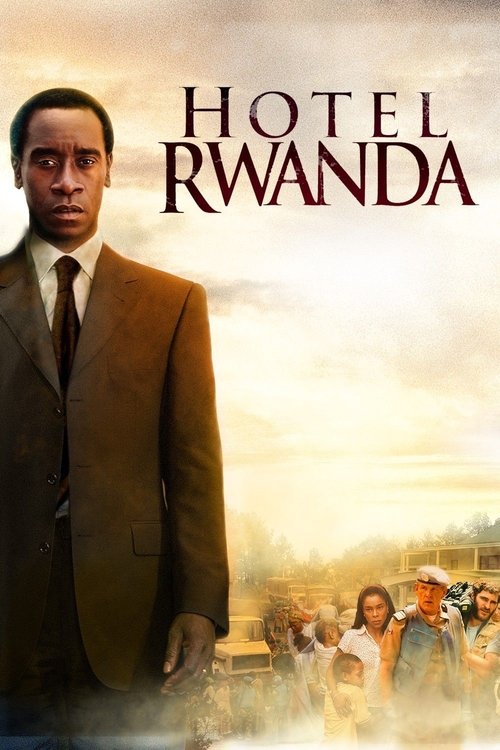
Title: Hotel Rwanda
Year: 2004
Director: Terry George
Writer: Terry George
Cast: Don Cheadle (Paul Rusesabagina),
Sophie Okonedo (Tatiana Rusesabagina),
Nick Nolte (Colonel Oliver),
Fana Mokoena (General Bizimungu),
Joaquin Phoenix (Jack Daglish),
Runtime: 121 min.
Synopsis: Inspired by true events, this film takes place in Rwanda in the 1990s when more than a million Tutsis were killed in a genocide that went mostly unnoticed by the rest of the world. Hotel owner Paul Rusesabagina houses over a thousand refuges in his hotel in attempt to save their lives.
Rating: 7.712/10
The Quiet Courage of Hotel Rwanda: A Testament in the Face of Horror
/10
Posted on June 6, 2025
Terry George’s Hotel Rwanda (2004) is a film that wields restraint as its sharpest weapon, turning a harrowing true story into a portrait of humanity’s resilience amid unimaginable atrocity. Set against the backdrop of the 1994 Rwandan genocide, it centers on Paul Rusesabagina, a hotel manager who becomes an unlikely hero. The film doesn’t just recount history; it forces us to confront the fragility of civility and the weight of individual choice in a world unraveling.
Don Cheadle’s portrayal of Rusesabagina is the film’s soul. He embodies a man whose ordinariness becomes extraordinary, navigating terror with a quiet dignity that feels achingly real. Cheadle’s performance is a masterclass in subtlety his eyes carry the burden of a thousand unspoken fears, yet he never tips into melodrama. Sophie Okonedo, as his wife Tatiana, matches him with a fierce tenderness, their chemistry anchoring the film’s emotional core. The supporting cast, including Nick Nolte as a conflicted UN officer, adds depth, though some characters skirt the edge of archetypes, a minor flaw in an otherwise taut script.
George’s direction is deliberate, resisting the urge to sensationalize. The camera, guided by cinematographer Robert Fraisse, doesn’t linger on violence but captures its shadow smoke over Kigali’s hills, the eerie glow of a radio inciting hate. This restraint amplifies the horror, making the unseen more visceral than graphic bloodshed. The hotel itself, the Mille Collines, becomes a character: a fragile oasis of order in chaos, its polished interiors stark against the genocide outside. Yet, the film’s pacing occasionally stumbles, with some scenes feeling repetitive, as if stretching to underscore the crisis’s relentlessness.
The screenplay, by George and Keir Pearson, excels in its focus on moral ambiguity. It doesn’t shy away from the world’s inaction UN bureaucracy, Western indifference without preaching. The dialogue is crisp, human, and grounded, though it occasionally leans on expository moments that feel too neat for the messiness of the reality. The score, blending African rhythms with somber strings, underscores the tension without overpowering it, though it lacks the distinctiveness of the film’s other elements.
Hotel Rwanda falters when it simplifies complex political dynamics, risking a Western-savior lens in its framing of foreign observers. Yet, its power lies in its refusal to let us look away from Rusesabagina’s courage a man who saves over a thousand lives not with heroics but with pragmatism and heart. This is a film that doesn’t just move you; it demands you wrestle with your own capacity for action. It’s not flawless, but its quiet bravery lingers like a challenge.
0
0
